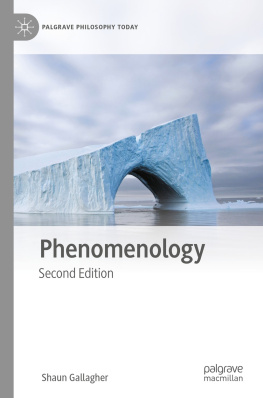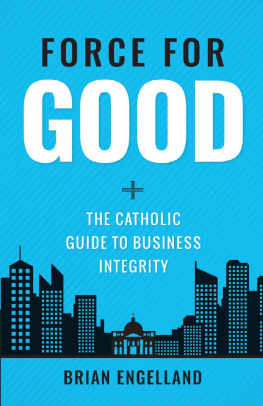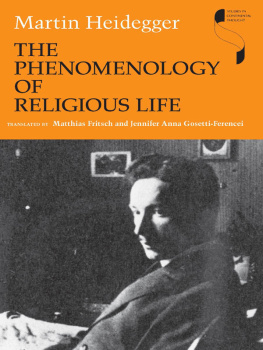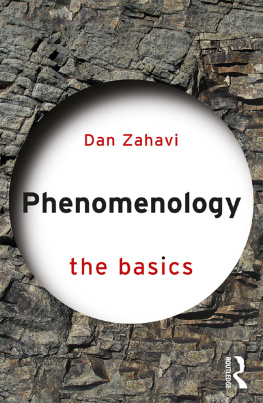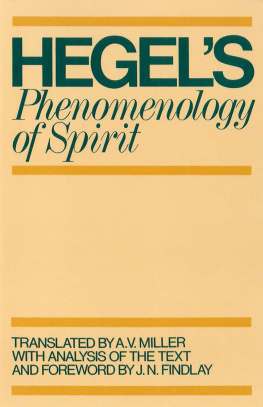Chad Engelland - Phenomenology (The MIT Press Essential Knowledge)
Here you can read online Chad Engelland - Phenomenology (The MIT Press Essential Knowledge) full text of the book (entire story) in english for free. Download pdf and epub, get meaning, cover and reviews about this ebook. year: 2020, publisher: MIT Press, genre: Religion. Description of the work, (preface) as well as reviews are available. Best literature library LitArk.com created for fans of good reading and offers a wide selection of genres:
Romance novel
Science fiction
Adventure
Detective
Science
History
Home and family
Prose
Art
Politics
Computer
Non-fiction
Religion
Business
Children
Humor
Choose a favorite category and find really read worthwhile books. Enjoy immersion in the world of imagination, feel the emotions of the characters or learn something new for yourself, make an fascinating discovery.

- Book:Phenomenology (The MIT Press Essential Knowledge)
- Author:
- Publisher:MIT Press
- Genre:
- Year:2020
- Rating:3 / 5
- Favourites:Add to favourites
- Your mark:
- 60
- 1
- 2
- 3
- 4
- 5
Phenomenology (The MIT Press Essential Knowledge): summary, description and annotation
We offer to read an annotation, description, summary or preface (depends on what the author of the book "Phenomenology (The MIT Press Essential Knowledge)" wrote himself). If you haven't found the necessary information about the book — write in the comments, we will try to find it.
Phenomenology (The MIT Press Essential Knowledge) — read online for free the complete book (whole text) full work
Below is the text of the book, divided by pages. System saving the place of the last page read, allows you to conveniently read the book "Phenomenology (The MIT Press Essential Knowledge)" online for free, without having to search again every time where you left off. Put a bookmark, and you can go to the page where you finished reading at any time.
Font size:
Interval:
Bookmark:
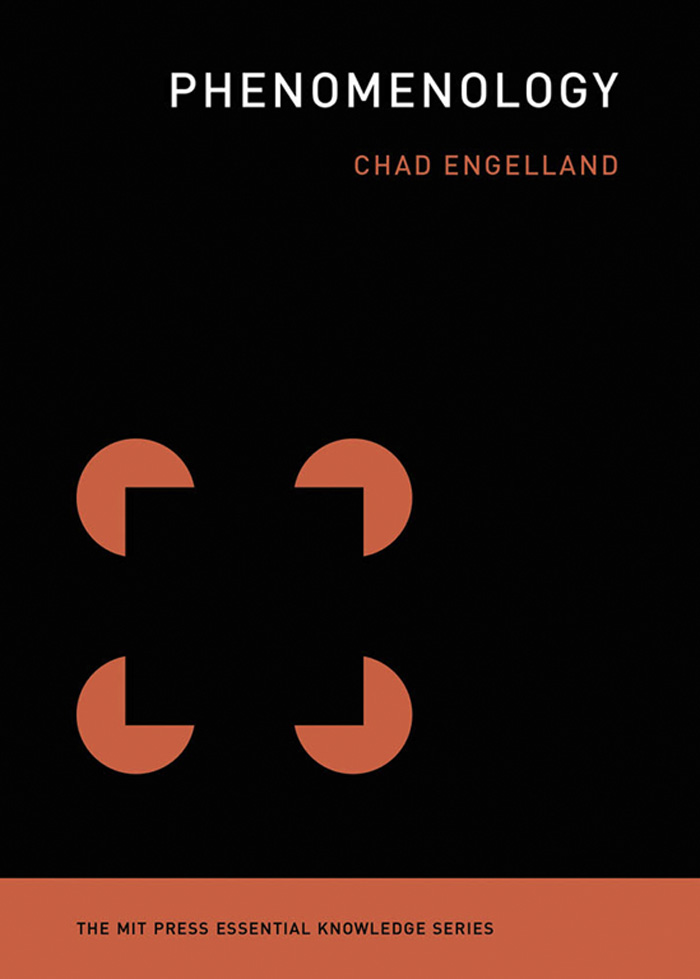
The MIT Press Essential Knowledge Series
A complete list of the titles in this series appears at the back of this book.
Chad Engelland
The MIT Press | Cambridge, Massachusetts | London, England
2020 Massachusetts Institute of Technology
All rights reserved. No part of this book may be reproduced in any form by any electronic or mechanical means (including photocopying, recording, or information storage and retrieval) without permission in writing from the publisher.
This book was set in Chaparral Pro by New Best-set Typesetters Ltd.
Library of Congress Cataloging-in-Publication Data
Names: Engelland, Chad, author.
Title: Phenomenology / Chad Engelland.
Description: Cambridge, Massachusetts : The MIT Press, 2020. | Series: The MIT press essential knowledge series | Includes bibliographical references and index.
Identifiers: LCCN 2019055200 | ISBN 9780262539319 (paperback)
Subjects: LCSH: Phenomenology.
Classification: LCC B829.5 .E54 2020 | DDC 142/.7dc23
LC record available at https://lccn.loc.gov/2019055200
10 9 8 7 6 5 4 3 2 1
d_r0
The greatest step that our time has to take is to realize that with the correct sense of philosophical intuition, the phenomenological grasp of essences, a boundless field of work becomes visible.
Edmund Husserl
The MIT Press Essential Knowledge series offers accessible, concise, beautifully produced pocket-size books on topics of current interest. Written by leading thinkers, the books in this series deliver expert overviews of subjects that range from the cultural and the historical to the scientific and the technical.
In todays era of instant information gratification, we have ready access to opinions, rationalizations, and superficial descriptions. Much harder to come by is the foundational knowledge that informs a principled understanding of the world. Essential Knowledge books fill that need. Synthesizing specialized subject matter for nonspecialists and engaging critical topics through fundamentals, each of these compact volumes offers readers a point of access to complex ideas.
When I was sixteen I got glasses for the first time. Stunning it was to experience the world in high definition againI distinctly recall the shock of being able to see the individual blades of grass. With the vividness of things crying out for recognition, I was pulled into perception with a renewed intensity.
Sherlock Holmes was on one occasion accused of possessing an almost magical insight. You appeared to read a good deal upon her which was quite invisible to me, says Watson. Holmes corrects him: Not invisible but unnoticed, Watson. You did not know where to look, and so you missed all that was important. I can never bring you to realize the importance of sleeves, the suggestiveness of thumb-nails, or the great issues that may hang from a boot-lace. Like good detective work, phenomenology enhances perception so that we notice all that is important in what seems to be small.
Martin Heidegger recalls how phenomenology drew him in: I remained so fascinated by Husserls work that I read in it again and again in the years to follow without gaining sufficient insight into what fascinated me. The spell emanating from the work extended to the outer appearance of the sentence structure and the title page. Phenomenology exercises a strange and powerful hold on its participants. They are bedazzled, beguiled, bewitched.
Often things fascinate us by snatching us away from our surroundings. An addictive video game, for example, makes us insensitive to the ordinary things and people about us. In this way, what fascinates makes our world smaller; it confines us to what enthralls or enslaves. By contrast, phenomenology rekindles the magic of the ordinary by putting us back in touch with experience. Instead of making the world smaller, it opens us up to everything and everyone. It is a spell that undoes the deadening spell of the mundane allowing us to see things again as if for the first time. Maurice Merleau-Ponty puts it this way: True philosophy entails learning to see the world anew. Phenomenology fascinates by restoring charm to the things of this world. It captures our hearts by setting us free, free to experience deeply the truth of things together with others.
Philosophy is there for the taking only because others have given their lives to the task of keeping it a live possibility for us, and we owe them a world of thanks. Among my many teachers, I would mention in particular Robert Sokolowski, whose courses and writings on phenomenology are rightly legendary.
I am fortunate to be at a place rich in phenomenological thinking, and my colleagues and institution deserve special mention. I was able to complete this book in a timely fashion due to support provided by Jonathan J. Sanford, Joshua Parens, and Matthew Walz. Three colleaguesChris Mirus, Bill Frank, and Hannah Venablewere generous and insightful with their criticisms of the text. An alumnus, Jason Baxter, provided invaluable suggestions. Phenomenology has a long history at the University of Dallas, and I am glad to be able to make my own contribution to it.
I am thankful to friends, family members, students, and colleagues, who have showed me the need for this book, and who, on many occasions, have served as the first audience for my thoughtsthoughts which, often enough, are responses to the experiences I have been fortunate enough to share with them.
My wife Isela and four kids ever challenge me to see the world anew, and they are the original catalysts for filling in the theses of phenomenology with living, quivering experience.
What is it about the beach that draws us so powerfully? Here in the great expanse where the land meets the water and the water converges on the sky, there is much to take in. Taste the salt on your tongue. Smell the heavy scent of the sea breeze. Feel the radiating sun above and the gritty sand below. See the froth of the rhythmic waves. Hear their noisy crash and whispering retreat. Unlike the neutral space of the modern office, this is a total body experience, which propels us into an array of playful activitiessunbathing, beachcombing, sandcastle building, surfing, and so on.
Amid such activity, there is much to think about. If you want to learn about the tides and the forces of the ocean, turn to oceanography and physics. If you find curious the creatures that waddle about at waters edge, turn to naturalists and field biologists. If you marvel at the beauty of the spectacular colors dancing on the waves as the sun slides toward the horizon, turn to the poet or painter. If you find your heart soar beyond all expectations, look to the mystic or theologian for direction. But if you want to know how truth is at play in the ocean-side experience, turn to phenomenology.
Phenomenology is the experience of experience. It names both a contemporary philosophical method and a contemporary philosophical movement that follows this method. Founded by Edmund Husserl, expounded by Max Scheler, Martin Heidegger, Maurice Merleau-Ponty, and others, phenomenology is now an international movement of researchers devoted to exhibiting the truth of experience. Rather than resting content with prior conceptions, it ventures forth into the field of experience so that truth might be met in the flesh.
Beware: the book in your hands has a peculiar subject matter. It is not about this topic or that one but about
Font size:
Interval:
Bookmark:
Similar books «Phenomenology (The MIT Press Essential Knowledge)»
Look at similar books to Phenomenology (The MIT Press Essential Knowledge). We have selected literature similar in name and meaning in the hope of providing readers with more options to find new, interesting, not yet read works.
Discussion, reviews of the book Phenomenology (The MIT Press Essential Knowledge) and just readers' own opinions. Leave your comments, write what you think about the work, its meaning or the main characters. Specify what exactly you liked and what you didn't like, and why you think so.



